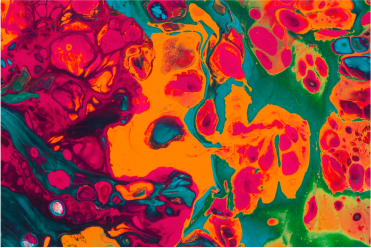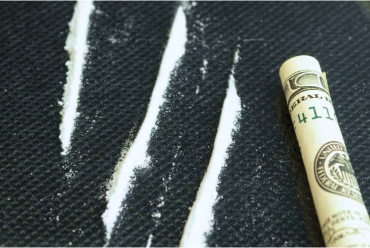Your child is facing one of the toughest battles of their life – addiction. Your love, patience, and support are exactly what they need right now. But could there be anything else you can do? This guide will explore how to help your adult child start recovering from addiction. We will discover the early signs of an addiction problem, the importance of creating a safe environment for healing, and how parents of addicts in general can support their children during this difficult time. Learn how to approach your child and the importance of help they can get at a substance abuse treatment California.
Skip To:
Is addiction widespread in California?
In California, 8.1% of adults admit to using some form of substance, showing how common substance abuse is in adulthood. Alcohol stands out in particular, with 6.1% of adults drinking. If you happen to be a parent of drug addict or alcohol addict, try to talk to them about seeking help before their addiction leads to serious consequences.
Parents of addicts wonder: Does my child have a substance abuse problem?
Recognizing the signs of addiction in your child is a critical step in helping them get better. Parents of addicted young adults, in particular, can notice the potential red flags, as those who have just transitioned from teenage years to adulthood are typically still living in their childhood homes. It’s important to know what to look for, though, both in their demeanor and in physical symptoms.
One of the first things you might notice are changes in your child’s behavior. These might include:
- Secrecy or lying: If your child suddenly becomes secretive about their activities or whereabouts, that could be a sign that something isn’t quite right.
- Change in friends or hangouts: Pay attention if they start hanging out in a new social circle or begin to avoid old friends.
- Loss of interest in activities: A sudden lack of interest in hobbies or activities they once enjoyed can be concerning.
- Financial problems: Unexplained money issues or constant borrowing of money might indicate a substance abuse issue.
- Mood swings or emotional instability: Look out for extreme changes in mood or unexplained outbursts.

In addition to these behavioral changes, parents of addicted adults will notice the physical symptoms of addiction. These may encompass:
- Changes in appearance: Sudden weight loss or gain, neglect of personal hygiene, or unexplained bruises or injuries.
- Health issues: Frequent sickness, nosebleeds (especially in cases of snorted drugs), or seizures.
- Sleep problems: Insomnia or sleeping through the entire day.
- Eyes and skin changes: Bloodshot eyes, unusually large or small pupils, or a yellowish tint to the skin or eyes.
It is important to mention that these signs can vary and might not always mean you are dealing with an addict in the making. However, if you observe several of these, the chances that the alcohol or drug addiction is to blame are real.
How parents of drug addicts can Approach their children
Once parents of drug addicted adults realize that their child is struggling with substance abuse, the first course of action would be to talk to them about it. Still, before cornering your child, it’s important for you to realize that you are dealing with a delicate situation. This means you shouldn’t approach it with judgment. Instead, try to tiptoe around the issue and show understanding and compassion.
Here are some tips on how to have this conversation:
- Start with empathy
- Talk openly and honestly
- Understand and support your child
- Avoid common pitfalls
Start with empathy
Make sure to choose the right time and place to talk about addiction. Find a quiet, private space where you won’t be interrupted. Also, ensure your child is sober and that it’s a good time for them to talk. Start by expressing your concern for their well-being.
Avoid accusing and judging. Use “I” statements like “I feel worried when I see…” When you frame your concerns as your own feelings, they are less likely to be interpreted as accusations that may result in your child becoming defensive. For instance, saying, “You’re always neglecting your responsibility,” sounds accusatory. In contrast, saying, “I feel worried when I see responsibilities being neglected,” focuses on your concern without placing direct blame.
Talk openly and honestly
As many parents of adult addicts would agree, especially those who have already helped their children reach lasting sobriety, when you have ”the talk”, you need to be direct but also compassionate. Express your concerns about overcoming addiction clearly and explain the behaviors and symptoms you have noticed and why they worry you. Also, listen actively. Give your child the space to share their feelings. Listen more than you talk. This shows that you respect their perspective and are there to support, not to lecture.
Understand and support
Your child is an adult. This means they have to make their own decisions. Therefore, offer them help but respect their choice. Make sure they know you support them, whether it’s finding professional help or exploring options for addiction rehabilitation. Still, don’t enable their addiction if they aren’t willing to get better. If it comes down to that, you may have to admit them into a rehab facility against their will.
Avoid common pitfalls
Don’t argue or confront aggressively. This can lead to defensiveness and shut down communication. Also, focus on the issue, not the person. Blame and shame can make them feel worse and less likely to seek help and stop drinking alcohol or using drugs.
Seeking professional help
Overcoming addiction requires more than just willpower to address it. Talking about it is just the beginning. The ultimate goal is to encourage your child to enroll in a rehab facility. Our facility in California can provide help for parents of drug addicted young adults and can guide you, as an affected parent, throughout the entire process of getting your child admitted. What’s more, we have the resources to support their recovery from the moment they step foot at We Level Up California to years after they leave our center.
One of the most important phases of addiction rehabilitation is detox. This process can be medically challenging, as it can bring about an array of withdrawal symptoms. However, our professional setting will offer medical support and ensure your child is safe and comfortable at this stage of their recovery. Lastly, we use various forms of therapy and counseling to address the emotional and psychological issues they may harbor.

Substance abuse treatment in California
If your child’s addiction hasn’t escalated to a point of no return or they have a strong support system at home, an outpatient program may be suitable. This type of program allows them to live at home while receiving treatment. This way, they can go on with their daily routines and responsibilities.
However, when addiction is more severe or if there are co-occurring disorders, residential treatment may be necessary, as it provides a higher level of care and a structured environment to stay in. Inpatient treatment is ideal if your child needs a setting free from outside distractions and triggers, where they can focus entirely on their recovery.
We Level Up California offers full-time care with round-the-clock support from addiction specialists. We address all aspects of substance abuse treatment at our inpatient drug rehab California facility. Those attending our residential rehab can reach sobriety thanks to a combination of therapies, counseling, and support groups.
How addiction therapy helps both addicts and parents of addicts
While the goal of addiction therapy is for the affected individual to stop using illicit or addictive substances, that’s just part of recovery. In fact, addiction therapy also includes understanding and solving the issues that led to addiction in the first place, whether they are emotional, psychological, or environmental. It provides tools and strategies to cope with cravings and triggers and helps prevent relapse.
Therapy at We Level Up will help change harmful behavior patterns and develop healthier habits in your child. It will provide them with a safe space for emotional healing and dealing with past trauma.
Some of the approaches we use at our facility include:
- Cognitive-behavioral therapy
- Group therapy
- Recreational therapy
Cognitive-behavioral therapy
CBT is a highly effective form of therapy that helps identify and change negative thought patterns and behaviors. For your adult child, this means learning to recognize triggers and unhealthy coping mechanisms. CBT is one of the most effective addiction therapy techniques because it empowers them to develop healthier ways of dealing with stress, emotions, and everyday challenges. It will teach them how to stop binge drinking and focus on overcoming addiction. This therapy is particularly useful in addressing the root causes of addiction and in equipping your child with the skills they need for long-term recovery.
Group therapy
Group therapy creates a supportive environment where your child can share experiences and challenges with others who are facing similar struggles. If your adult child has a problem with feelings of isolation, this might be the best therapy for addiction. It will give them a sense of community. Through group therapy, they will gain different perspectives and learn how to communicate better.
Recreational therapy
Recreational therapy involves engaging in various recreational activities that are enjoyable and therapeutic. This form of therapy helps your adult child rediscover hobbies and interests that might have been lost to addiction. It’s a way to learn new skills, build self-esteem, and improve physical and mental health. Recreational therapy will help your adult child find joy and fulfillment in activities that do not involve substance use.

Get Your Life Back
Find Hope & Recovery. Get Safe Comfortable Detox, Addiction Rehab & Dual Diagnosis High-Quality Care.
Hotline (855) 695-1160Supporting family members
The role of parents of addicts or their families, in general, is to support, understand, and encourage loved ones throughout their recovery. Family should offer compassion and understanding at all times, as that will create a nurturing environment for overcoming addiction. Also, you should help maintain accountability and encourage your child to stick to their sobriety goals.
However, individuals with a substance use disorder aren’t the only ones to receive therapy. In fact, parents of addicts are often encouraged to take part in group family therapy.
There is more than one way therapy for family members of addicts can help. For instance:
- Group therapy educates family members about the nature of addiction, its effects, and the recovery process.
- It provides a safe space to share experiences, challenges, and successes with others who are in similar situations.
- During sessions, family members have the opportunity to express their feelings and work through their own emotional pain.
- Group family therapy teaches effective ways to deal with the stress and challenges that come with having an addicted loved one.
- It also helps in forming a network of support with others who understand what they’re going through.
Managing medication and withdrawal
In treatment, various medications are used to treat co-occurring disorders, manage withdrawal symptoms, and reduce cravings. To avoid potential complications, medication should be taken exactly as healthcare professionals prescribe it. To further ensure safety, parents of addicts can communicate with doctors or therapists regularly so they can monitor effectiveness and adjust treatment if needed.
Managing withdrawal symptoms
Withdrawal can be one of the most challenging aspects of recovery, with symptoms varying based on the substance used and individual factors. Coming off of lithium, for example, is known to cause quite a range of symptoms. During this period, we may observe:
- Physical symptoms: These can include nausea, shaking, sweating, and more severe symptoms.
- Emotional and psychological symptoms: Anxiety, depression, irritability, and sleep disturbances are common.
It’s important to mention that medical supervision during withdrawal is often necessary, especially for substances with severe withdrawal symptoms, such as delirium tremens. Simple comfort measures like a quiet environment, hydration, and healthy foods can also help ease withdrawal symptoms, which is something We Level Up California certainly provides.
Get Help. Get Better. Get Your Life Back.
Searching for an Accredited Drug and Alcohol Rehab Centers in Near You?
Even if you have failed previously and relapsed, or are in the middle of a difficult crisis, we stand ready to support you. Our trusted behavioral health specialists will not give up on you. When you feel ready or just want someone to speak to about therapy alternatives to change your life call us. Even if we cannot assist you, we will lead you to wherever you can get support. There is no obligation. Call our hotline today.
FREE Addiction Hotline – Call 24/7Educating about substance effects
Among adults, the usage of illicit drugs is reportedly 2.9%. Among these, some of the most commonly used substances are cocaine and LSD.
Effects of LSD
LSD (lysergic acid diethylamide) is known for its powerful hallucinogenic effects. While it’s not considered addictive in the traditional sense, it can have lasting psychological effects. It’s important to know that:
- Long term effects of LSD can be detrimental to one’s mind, potentially causing issues like schizophrenia or severe depression.
- Users may experience flashbacks or visual disturbances long after stopping LSD use.
- People who consume LSD report long-term changes in their thought processes, emotional responses, and overall perspective on life.
Effects of Cocaine
Cocaine is a highly addictive stimulant with significant long-term effects, as well.
- Chronic cocaine use can lead to heart disease, heart attacks, and hypertension.
- Cocaine can cause long-lasting changes in the brain’s reward system, increasing the risk of addiction and making recovery challenging.
- Long-term use can exacerbate or lead to anxiety, depression, and paranoia.
- Cocaine use can result in weight loss, gastrointestinal complications, and chronic nosebleeds (if snorted).
If your loved one has developed an addiction, we advise you to seek professional help and encourage them to join the cocaine addiction treatment program California is happy to have.
Parents of addicts and their role in maintaining sobriety and building a supportive environment
Being a parent to a drug addict, you should encourage them to attend support groups for post-active treatment. These programs will give them a chance to connect with others facing similar struggles. Help them create a daily routine with regular meals, sleep, and time for hobbies or exercise to reduce stress and provide stability. Assist them in identifying and avoiding triggers to prevent relapse. A relapse prevention plan can also include strategies like calling a friend or practicing mindfulness when cravings hit. Additionally, build a supportive network of family and friends and encourage participation in healthy, substance-free social activities.
Help your adult child start recovering from addiction and live a healthier life
Supporting your adult child through addiction recovery isn’t easy. Yet, it is a profound act of love and commitment that all parents of addicts can relate to. While it might not seem like it at every stage of addiction treatment, your influence and encouragement are integral to a successful outcome. By standing beside your child as they begin to recover, you aren’t just helping them confront and overcome their addiction; you’re also guiding them toward a healthy life free of substances.
Source:
- Health Care Almanac Substance Use in California: Prevalence and Treatment. 2022, https://www.chcf.org/wp-content/uploads/2022/01/SubstanceUseDisorderAlmanac2022.pdf
- McLellan, Thomas. “Substance Misuse and Substance Use Disorders: Why Do They Matter in Healthcare?” Transactions of the American Clinical and Climatological Association, vol. 128, no. 128, 2019, pp. 112–130, www.ncbi.nlm.nih.gov/pmc/articles/PMC5525418/.
World-class, Accredited, 5-Star Reviewed, Effective Addiction & Mental Health Programs. Complete Behavioral Health Inpatient Rehab, Detox plus Co-occuring Disorders Therapy.
CALL (855) 695-1160End the Addiction Pain. End the Emotional Rollercoaster. Get Your Life Back. Start Drug, Alcohol & Dual Diagnosis Mental Health Treatment Now. Get Free No-obligation Guidance by Substance Abuse Specialists Who Understand Addiction & Mental Health Recovery & Know How to Help.
Experience Transformative Recovery at the We Level Up California Treatment Center.
See our authentic success stories. Get inspired. Get the help you deserve.



Start a New Life
Begin with a free call to an addiction & behavioral health treatment advisor. Learn more about our dual-diagnosis programs. The We Level Up treatment center network delivers recovery programs that vary by each treatment facility. Call to learn more.
- Personalized Care
- Caring Accountable Staff
- World-class Amenities
- Licensed & Accredited
- Renowned w/ 100s 5-Star Reviews
We’ll Call You
Search We Level Up California for How to Help Your Child Start Recovery: Guide for Parents of Addicts Topics & Resources





